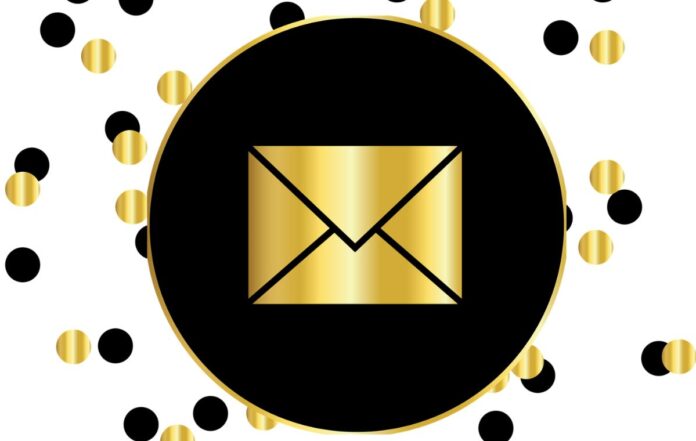Are you one of the people who feel like they can’t keep up with all the emails that come into their inbox? Do you notice it more on certain days, like Black Friday? Do you sometimes miss an important work email because it’s buried among less important ones? Even if it doesn’t happen to you in quite this way, you may still feel like things are getting out of hand.
Don’t worry if so. You can keep this from happening to you by getting into some good habits. Take note of these ten tips for managing your email, and you’ll see how, with a little organization, everything flows with less stress.
How to Organize your Email?
Fill in the Subject Section
You must find it annoying when someone sends you an email without putting anything about what it’s about in the subject line. Don’t do the same thing, and explain clearly and briefly what you’re going to talk about. It will help the other person know if it is important, if it has to do with work, or if it can wait until later.
In the same way, if you fill in the subject, it will be easier to find the email in your sent tray or through a search engine. It will only take two seconds, so there’s no reason not to do it.
If it Takes Less than Two minutes, Answer
If it will take you less than two minutes to reply to that email, do it now. Most of the time, all we have to do with a proposal is say whether we accept it or not. If so, don’t delay. It will only take a few seconds, and you won’t have to go through it all over again to figure out what that was.
Check the Mail Every Couple of Hours
Checking your work email every couple of hours is another way to keep your work from being interrupted by things that don’t need full-volume alerts. That will be the best time to answer what’s important but can wait, mark what’s important but can wait as unread, and get rid of the rest if they’re about things you don’t need to see again.
Classify the Messages
Most email accounts let you sort the messages in your inbox, so he already knows how to put the most important ones on one side and the less important ones on the other.
Some accounts do it automatically by figuring out which ones we answer the most, like important work and personal matters, and putting newsletters and other notifications in a separate group. Differentiating between them will help you focus on what’s most important and put the rest on hold until you have time to look at them.
Filter Unread Messages
In any case, filter by ” unread ” to go straight to your inbox and make sure you don’t miss any messages you haven’t read yet. You can even put the ones you want into groups so you can learn more about them later.
We recommend that you filter the unread every few days, no matter what method you use. If your email is up to date, nothing will happen because there won’t be any, but if you missed something by accident, you’ll see it before too much time has passed. Don’t forget to look in your spam folder, either. She may have been going through something that shouldn’t have been happening.
Use the Search Engine
As long as you know how to use it right, the email search engine is both fast and useful. If your message archiving system is out of date or you haven’t thought it was necessary to get one, it will save you time when you are in a hurry and need to find something to use the search engine to find the emails you need. You can narrow down your search by selecting only sent or only received.
Delete the Messages
Cleaning digital devices are important. It’s not about deleting work emails, but all the other ones that aren’t important, like those from the grocery store, notices of purchases that have already been delivered and charged correctly, ads, etc.
Throw away any emails that are taking up too much space and that you don’t need to look at again. Do it while you’re reading them. Get rid of it right away.
Archive the Mail
Putting messages in folders is also very helpful, especially for work-related messages. If you don’t want to do it every day or just don’t realize it, set aside one day a week, every 15 days, or once a month to go through all of your mail and put the things you want to keep in their proper folders. It will be very useful if you need to use one in the future.
On the other hand, you don’t have to do too much with the folders. Try to have only a few with clear ideas, or you will spend more time than you need trying to figure out where to put that message from a family member who wants you to do a job for them. Work or family? No matter which categories you choose, pick the ones that will work best for you. Don’t try to copy the methods of others if you don’t think they will work for you.
Mute Notifications
You turn off email alerts so they don’t get in the way of your work or that free time you want to spend with your partner or family. Like with social networks, it’s best to choose which emails you want to receive. If you can set your notifications to only go off at work, you should do that. And if you don’t want that to happen over the weekend, make sure to turn them off on Fridays or Saturdays and turn them back on Mondays. So, stay away from one of the most important time-wasters.
Use Two Email Accounts
You probably already have two email accounts, one for work and one for personal use. But if you don’t, you should open one and use it only for things like friends, family, and digital accounts like those of TV platforms and online stores, as well as newsletters you’ve signed up for, and keep the other one just for work. You’ll save more time than you can think of.


















![10 Countries With the Best Healthcare in the World [Statistical Analysis] Countries With the Best Healthcare in the World](https://articleify.com/wp-content/uploads/2025/07/Countries-With-the-Best-Healthcare-in-the-World-1-150x150.jpg)










